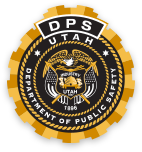Crime Scene Specialist (Advanced)
Description:
The Advanced Class is designed to provide the experienced investigator with new skill sets beyond the basic skills learned in the first class. This class should only be taken by those investigators that are serious and actively participating in crime scene response. It is not recommended for the occasional crime scene responder.
As in the Basic course, it is imperative that a student bring a digital SLR camera, macro lens, and laptop to this course to aid in the rapid review and verification of photographs as well as the other standard photography attachments (e.g., flash, sync cord, tripod, etc…) The class does not teach entry-level camera use. We use the Nikon D70, and while most cameras are similar, they are different, and we cannot be expected to know everything about every camera. Hence, the student should be very familiar with their camera, its settings and attachments.
Minimum Passing Grade:
There are four written examinations given at the start of each class (0800) in the morning. The student must have a cumulative score of 70% or higher to pass the class and receive credit. There are multiple lab exercises that the student must complete and have instructor verification (signoff). The last day of class, on Friday, the students will assemble into four teams and each team will process a mock crime scene, demonstrating the skills that they have learned and practiced during the week.
Student Expectations
The student should plan on being very busy and adjust their work schedule to compensate for this class. To do well on the written test, each student will need to study an average of 1-2 hours each night. Optionally, the student may want to practice at night some of the skills that they learned during the day. This will help the crime scene practical go smoother and lessen student anxieties. Remember to have fun and take full advantage of this time to ask questions of these experts teaching this class and practice your newly learned techniques.
Schedule: Pending
Monday
8:00 — Welcome
8:15-10:00 Blood Enhancements and Lab Exercises
10:15-5:00 Forensic Photography – Challenging samples, photographing enhancements, night photography
Tuesday
8:00 -8:30 Exam
8:30 – 12:00 Advanced Latent Prints
1:00 – 5:00 Bloodstain Pattern Analysis and Lab Exercises
Wednesday
8:00 -8:30 Exam
8:30 – 10:00 – DNA
10:00 – 5:00 Firearm Basics / Safety / Shooting Scene Documentation, Trajectory, etc
Thursday — AT HILL AFB
8:00 -8:30 Exam
8:30 – 10:30 Firearm Basics / Safety / Shooting Scene Documentation, Trajectory, etc
10:30 – 12:00 Footwear/Tire Casting/Gel lifts/Electrostatic lifter lecture
1:30 – 5:00 Footwear/Tire Casting/Gel lifts/Electrostatic lifter — Exercises
Friday – AT HILL AFB
8:00- 9:00 Final Written Exam
9:00- 3:00 Mock Crime Scene with breaks and lunch
Student Notes:
Cost for course to cover materials is $250.00 payable to the Utah Bureau of Forensic Services prior to the first day of class. If you register for both the Basic and Advanced Classes in advance you will receive a discount and can attend both classes for $400.00.
Prerequisites:
1. Submittal of an application and materials fee.
2. Selection by the POST/Crime Lab resource committee.
3. Successful completion of the CSST basic course or the Crime Lab’s crime scene academy (taught from 1995 – 2004). These requirements are essential in verifying that the crime scene investigator has been taught the basic skill sets.
4. A willingness to devote the entire week to the study of crime scene processing is imperative. There is very little resource for make ups, so the student should plan on being at the class for the entire week.
5. A camera (SLR) – not a point and shoot.
Max enrollment: (16)
The cost of the class is $250.00 each or $400.00 for both.
For R.S.V.P., payment and general class information please contact Bo Smith at bosmith@utah.gov or 801-393-4549
| Course Dates | Location | TIme | Status |
| Schedule Pending |
